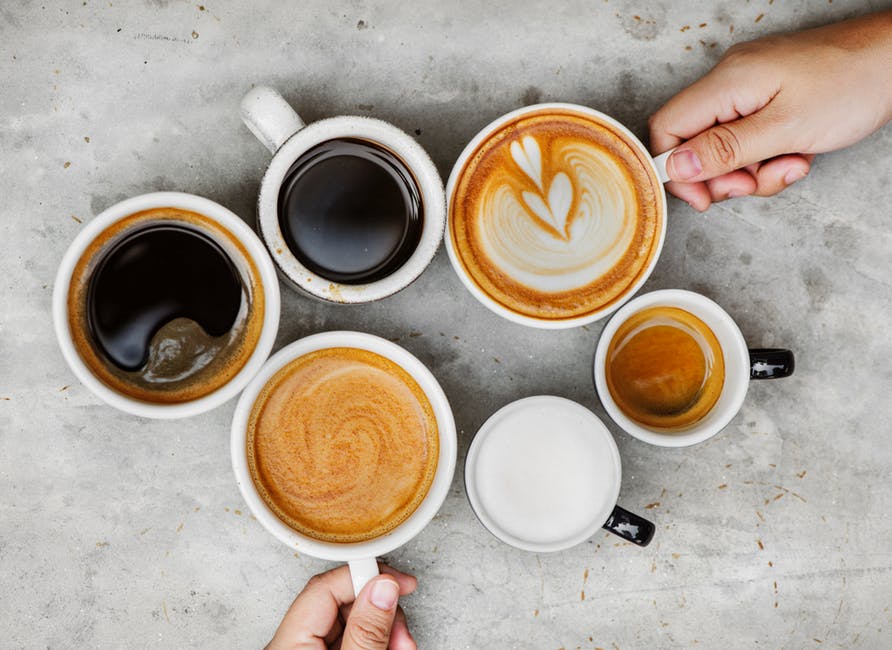
Caffeine has been around for over a millennium, though the exact origin is hard to pinpoint. If you believe Ancient Chinese tales, we've been drinking caffeinated tea for over 4,000 years.
If those tales are false, caffeine use may be slightly newer, and the Chinese may not have been the first to use it. We have some pretty strong evidence that the Olmecs were using cacao products by 1,500 BCE.
Regardless of how old caffeine is, or where it comes from, there's no disputing that's become quite popular around the world. One common complaint is that most sources of caffeine are very unhealthy.
Thankfully, this isn't always the case. We'll talk about some healthy sources of caffeine in the paragraphs below.
1. Green Tea
Most teas are healthy sources of caffeine, but green tea is one of the best. Green tea has a load of health benefits, and it seems like more are being discovered all the time.
Evidence shows that compounds in green tea may help fight cancer, diabetes, and heart disease. It may even keep our minds sharp as we age.
Green tea comes from the Camellia sinensis plant, which is also used to make black tea and oolong tea. The difference comes from how the tea is made.
For green tea, open leaves and buds are cut from the plant and left to dry. Finally, they are steamed and allowed to dry again. This process allows the buds to be made into tea while also retaining many of the natural proteins that make the tea so healthy.
The only tea that's healthier than green tea is white tea, which is cut from the plant earlier, exposed to oxygen as little as possible, and then made into tea. Unfortunately, this tea isn't often sold worldwide because it has a weak, almost undetectable taste compared to other drinks.
2. Yerba Mate
What is Yerba Mate? Yerba Mate is a type of tea made from the Amazonian plant Ilex paraguariensis, which is a type of holly. The tea is traditionally drunk from a vessel known as a gourd using a special metal straw.
The gourd vessel gets its name because it was initially made from hollowed-out gourds. Gourds are sometimes still used as vessels, but there are also ones made from other materials, including ceramic.
The metal straw helps to strain bits of leaves so that you don't accidentally drink them. The host of benefits offered by Yerba Mate makes it worth it.
It helps boost your immune system and fight off infections. It also makes it easier to stay in shape and may sharpen your concentration.
It has a higher number of antioxidants than even green tea, which is quite impressive. Whether Yerba Mate is healthier than green tea is hard to say, though both are definitely better than soda or energy drinks.
3. Coconut Water
If you're a fan of Gilligan's Island, Castaway, or any other show or movie about someone surviving on a deserted island, you may have seen people drinking from coconuts. Contrary to popular belief, that's actually water in the coconut, not milk. That being said, coconut water does actually look a bit like milk.
It turns out that not only is there water in coconuts, but it's good for you, too.
Coconut water has a lot of antioxidants and might make your heart healthier and your blood pressure lower. It could also help with diabetes and helps replace electrolytes, which makes it another excellent substitute for energy drinks.
It's also pretty tasty and is known for its sweet flavor.
You may not want to drink it all the time, though. Coconut water contains a high amount of potassium. You'd have to drink a lot for potassium poisoning to affect you, but it can be dangerous when it does happen. And in rare cases is fatal.
You also shouldn't drink coconut water if you have kidney problems, low blood pressure, or an already-high amount of potassium in your blood.
You also shouldn't drink it within two weeks before any surgery. This goes without saying, but don't drink it during surgery, either, unless you're not the one being operated on.
4. Guarana
Much like Yerba Mate, Guarana is native to the Amazon rainforest. They're also one of the most potent sources of caffeine out there.
One gram of guarana seeds contains over 40 mg of caffeine. One coffee bean contains about 10 mg. If you're feeling sluggish throughout the day, a guarana seed now and then might be a good idea.
Studies suggest that guarana can strengthen the immune system and the health of various organs, such as your eyes and heart. It may also keep you focused and prevent diarrhea.
Keep in mind that guarana can have side effects, though none of them are particularly dangerous. Since guarana contains more caffeine than coffee beans, it's easier to have too much too quickly. If you get a headache or start getting jittery, you may want to stop for a while.
The Healthiest Sources of Caffeine
Caffeine has long been associated with an unhealthy lifestyle, but it doesn't have to be. We've mentioned a few sources of caffeine that are good and good for you in the paragraphs above.
Caffeine can be found in a lot of places, though, and many of them are fairly healthy. You may want to look around more just to see what your options are.
If you want to know more about natural sources of caffeine, our site can help. We can give you some great suggestions for staying awake at work.